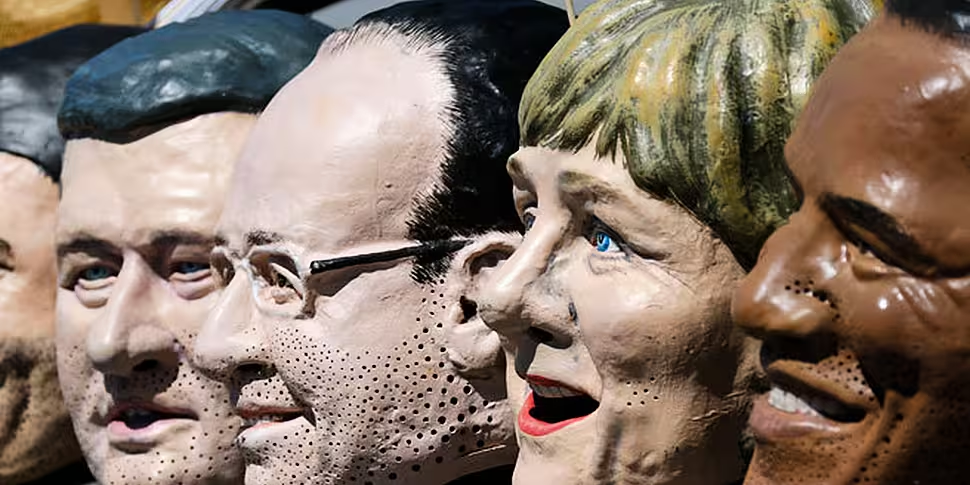The Greek debt crisis is likely to overshadow the second day of the G7 Summit of world leaders in Germany today.
It comes after European Commission President, Jean-Claude Juncker, yesterday accused the Greek Prime Minister of failing to deliver the economic reforms he promised.
Greece has until the end of the month to make €1.6bn in payments to the International Monetary Fund, and is due to repay €6.7bn to the European Central Bank by August.
How to tackle global warming will also be on the agenda, along with a proposed trade deal between the European Union and the United States, the Transatlantic Trade and Investment Partnership (TTIP).
Iraqi Prime Minister Haider al-Abadi will also be on the sidelines of the summit to discuss his country's fight against Islamic State (IS).
Russia was ejected from the G8 group, resulting in this year' slimmed-down summit line-up of seven, over the crisis in Ukraine.
On Saturday, thousands of demonstrators packed Garmisch-Partenkirchen, a small Alpine town, to protest a wide range of causes.
The demonstration was largely peaceful - but a small group of black-clad protesters clashed with police as they marched through the town, charging at officers who responded with pepper spray.
The Financial Times Brussels bureau chief, Peter Spiegel, told Newstalk Breakfast despite the escalation the Greek debt crisis is becoming more and more difficult to manage.









